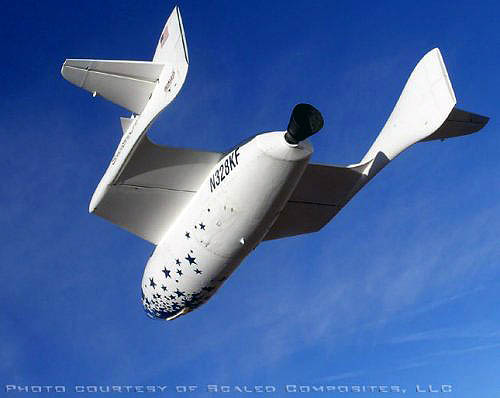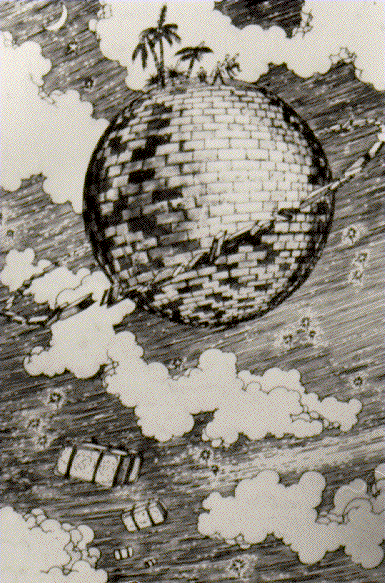
- Space travel in SF
- Introductory Physics for Space travel
- What we have learned from Space Exploration
- What we can do in the future
- Note a really good source of "hard" science fiction: http://www.astrosociety.org/education/resources/scifi.html

|
|
Probably the first modern: Cyrano de Bergerac: from Encyclopedia Britannica---
| Date | Science | Author | Book |
| 1860 | Verne | Voyage to the Moon |
Hale The Brick Moon 1899
|
 |
| 1900 | Wells | First Men in the Moon (Antigravity) | |
| ~1920 | Tsiolkovsky | Beyond the Planet Earth (Rockets) | |
| 1926 | Goddard | First Liquid Fueled Rocket | |
| 1944 | V2 rocket reaches space | Wernher Von Braun | |
| 1948 | Geosynchronous Satellites | Arthur Clark |
| 1953 | Mission of Gravity | Hal Clement | .jpg) |
| 1957 | Sputnik 1 | USSR | |
| 1961 | Vostok 1 | Yuri Gargarin | |
| 1969 | Apollo 11 | Neil Armstrong |
As a method of sending a missile to the higher, and even highest, part of the earth's atmospheric envelope, Professor Goddard's multiple-charge rocket is a practicable, and therefore promising device. Such a rocket, too, might carry self-recording instruments, to be released at the limit of its flight, and conceivable parachutes would bring them safely to the ground. ...
But that is a slight inconvenience, .... It is when one considers the multiple- charge rocket as a traveler to the moon that one begins to doubt and looks again, to see if the dispatch announcing the professor's purposes and hopes says that he is working under the auspices of the Smithsonian Institution. ... Still, to be filled with uneasy wonder and express it will be safe enough, for after the rocket quits our air and and really starts on its longer journey, its flight would be neither accelerated nor maintained by the explosion of the charges it then might have left. To claim that it would be is to deny a fundamental law of dynamics, and only Dr. Einstein and his chosen dozen, so few and fit, are licensed to do that.
That Professor Goddard, with his "chair" in Clark College and the countenancing of the Smithsonian Institution, does not know the relation of action to reaction, and of the need to have something better than a vacuum against which to react--to say that would be absurd. Of course he only seems to lack the knowledge ladled out daily in high schools.
But there are such things as intentional mistakes or oversights, and, as it happens, Jules Verne, who also knew a thing or two in assorted sciences--and had, besides, a surprising amount of prophetic power--deliberately seems to make the same mistake that Professor Goddard seems to make. For the Frenchman, having got his travelers to or toward the moon into the desperate fix riding a tiny satellite of the satellite, saved them from circling it forever by means of an explosion, rocket fashion, where an explosion would not have had in the slightest degree the effect of releasing them from their dreadful slavery. That was one of Verne's few scientific slips, or else it was a deliberate step aside from scientific accuracy, pardonable enough of him in a romancer, but its like is not so easily explained when made by a savant who isn't writing a novel of adventure.
Forty nine years afterwards, on July 17, 1969, the day after the launch of Apollo 11, the New York Times published a short item under the headline
"Further investigation and experimentation have confirmed the findings of Isaac Newton in the 17th century and it is now definitely established that a rocket can function in a vacuum as well as in an atmosphere. The Times regrets the error."